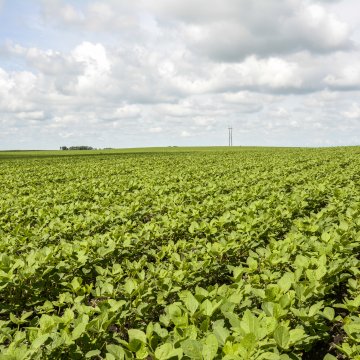May 21, 2025 | 05:14 GMT +7
May 21, 2025 | 05:14 GMT +7
Hotline: 0913.378.918
May 21, 2025 | 05:14 GMT +7
Hotline: 0913.378.918

Agricultural commodity prices have surged since last year due to a boom in Chinese imports and tightening inventories, leading the FAO last month to forecast record costs in 2021 for food importers.
However, prices of most agricultural commodities should fall slightly in real terms in the decade ahead, reverting to a long-term trend of improving production meeting rising demand from a growing population, the FAO and the Organisation for Economic Cooperation and Development (OECD) said in a joint report.
"The fundamentals don't say to us that we will be moving to a supercycle of commodity prices," Maximo Torero, the FAO's chief economist, said during a presentation of the FAO/OECD Agricultural Outlook 2021-2030.
Chinese demand will remain a driver of global agricultural markets, particularly for meat, fish and feed grains, but rising at a lower pace than in the past decade as China's population expands more slowly and consumption of some foodstuffs levels off, the report said.
Overall greenhouse gas emissions from agriculture are projected to increase by 4% over 10 years, not fall, with livestock accounting for some 80% of the rise - and a U.N. goal of "zero hunger" by 2030 remains far off.
"The problem is distribution and access to food in some regions," OECD Secretary-General Mathias Cormann said, reiterating his organisation's call for farm subsidies to focus more on infrastructure and innovation.
The 10-year outlook assumes an economic recovery following the coronavirus pandemic in which food markets prove resilient.
Net agricultural exports from Europe and Central Asia are seen doubling over the decade due to Russian and Ukrainian grain shipments.
In contrast, net imports to sub-Saharan Africa are projected to rise by 75% by 2030 due to higher imports of wheat, rice, maize and soybean.
(Reuters)

(VAN) Attempts to bring down the price of the Japanese staple have had little effect amid a cost-of-living crisis.

(VAN) Fourth most important food crop in peril as Latin America and Caribbean suffer from slow-onset climate disaster.

(VAN) Shifting market dynamics and the noise around new legislation has propelled Trouw Nutrition’s research around early life nutrition in poultry. Today, it continues to be a key area of research.

(VAN) India is concerned about its food security and the livelihoods of its farmers if more US food imports are allowed.

(VAN) FAO's Director-General emphasises the need to work together to transform agrifood systems.

(VAN) Europe is facing its worst outbreak of foot-and-mouth since the start of the century.

(VAN) The central authorities, in early April, released a 10-year plan for rural vitalization.